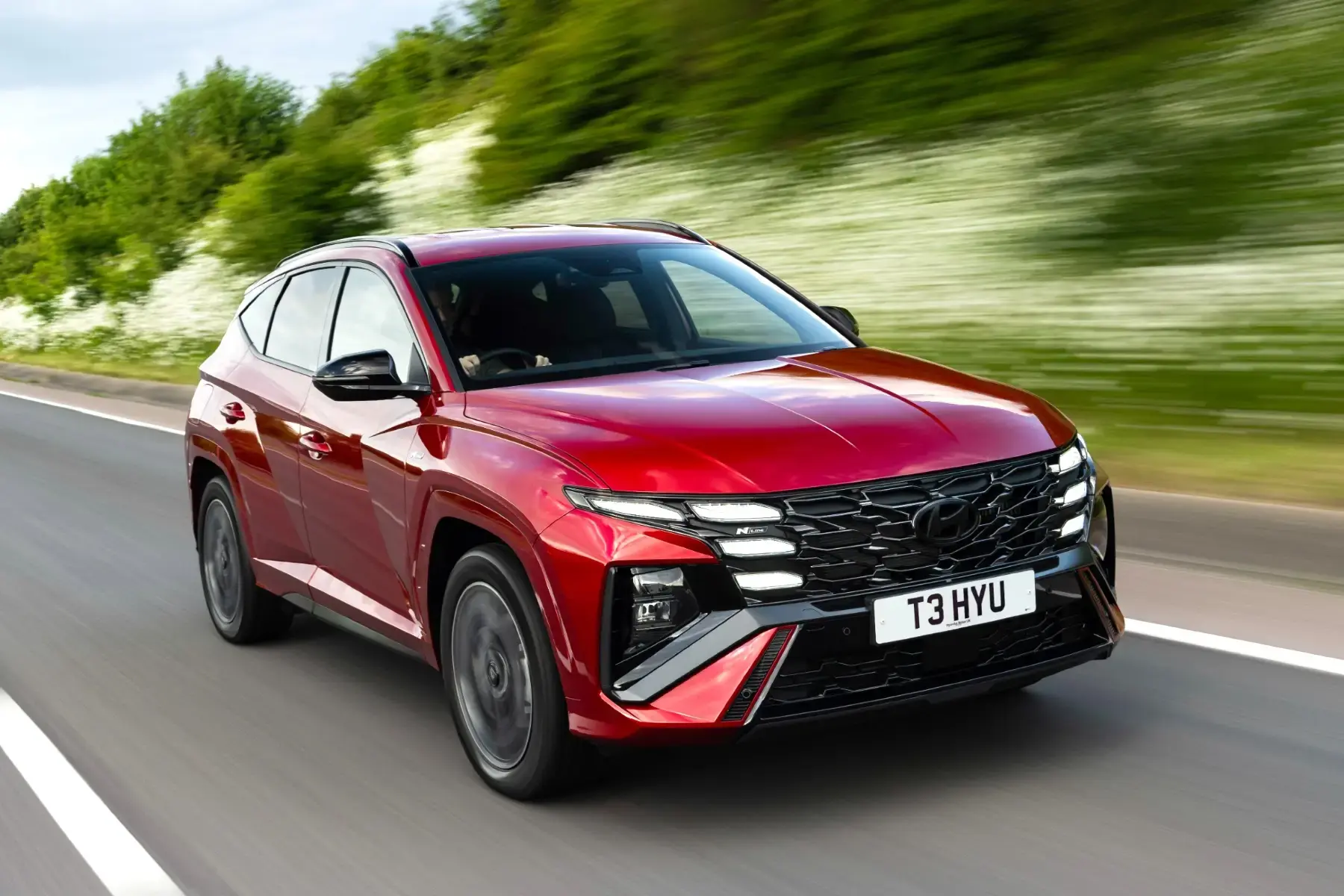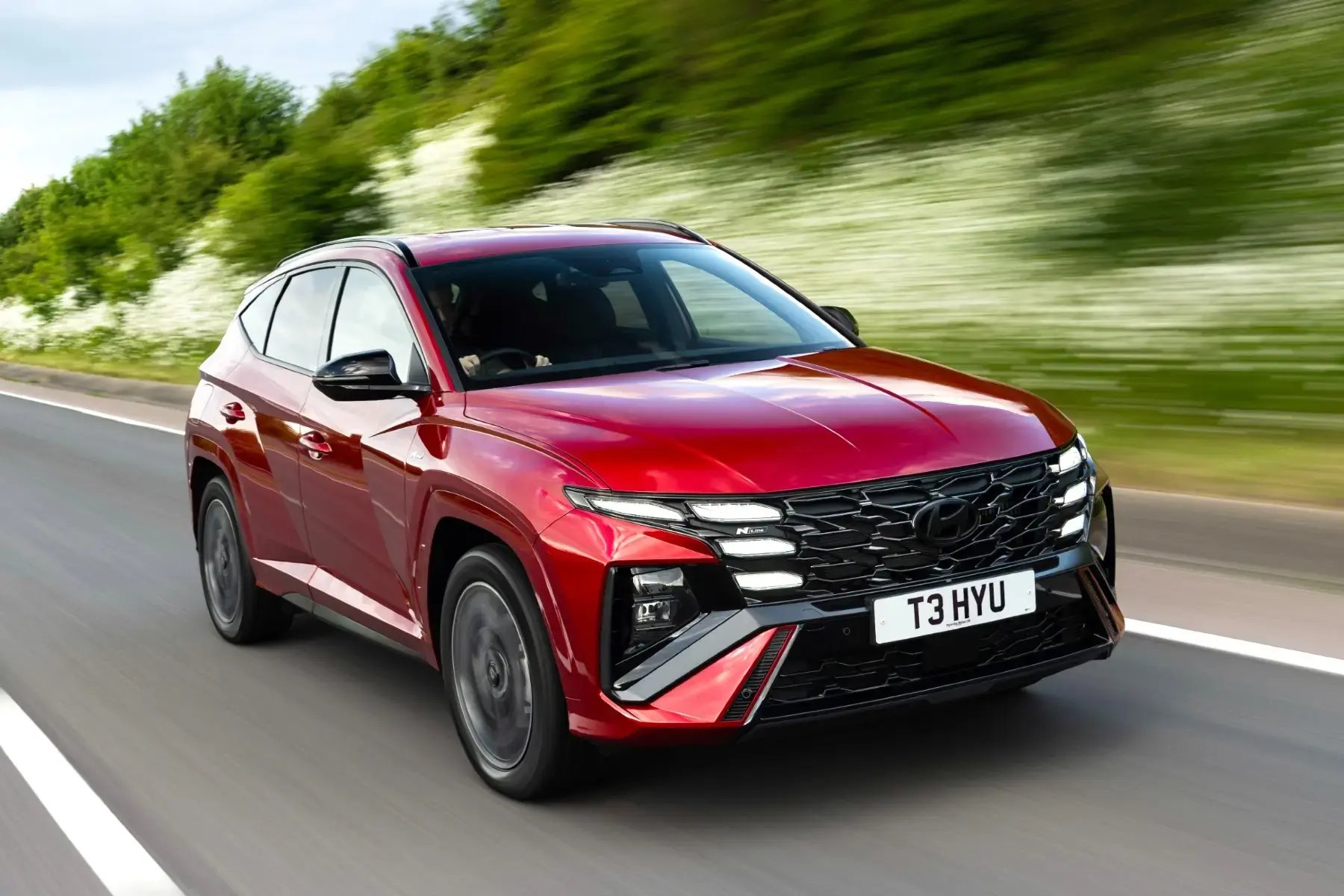- Carmoola
- Blog
- Tips and Advice
- Advantages and disadvantages of hybrid cars explained
- 🗞 Tips and Advice
- Last updated: Nov 24, 2025
- 21 Min Read
Advantages and disadvantages of hybrid cars explained
Written by

Verified by


See how much you can borrow in 60 seconds
| Representative Example | |
|---|---|
| Loan amount | £10,000 |
| Interest rate | 13.9% APR |
| 54 payments of | £246 |
| Total cost of credit | £3,284 |
| Option to purchase fee | £1 |
| Total payable | £13,285 |
Hybrid cars are popular for their good fuel economy, low exhaust emissions and potential for affordable running costs. For many people, they’re an appealing compromise between a conventional car and an electric car, but how do you know if a hybrid is right for you?
In this article, we’ll weigh up the advantages and disadvantages of hybrid cars, cut through the jargon and help you decide whether a hybrid car could be a good choice for you.
A hybrid car combines a petrol or diesel engine with an electric motor (or motors) to give improved fuel economy and emissions. The three main types of hybrid cars are mild hybrids (MHEVs), hybrids (HEVs) and plug-in hybrids (PHEVs). In this article, we’re focusing exclusively on hybrids and plug-in hybrids, but we’ve included a definition of what a mild hybrid is so that you can see these are quite different altogether.
Key takeaways
- A hybrid car could reduce your fuel costs depending on your driving habits and, with plug-in hybrids, your charging habits
- Hybrids cost more than petrol or diesel cars but could work out cheaper in the long run if it fits your use case
- Plug-in hybrids (PHEVs) offer tax savings for company drivers but only make financial sense for private buyers if charged regularly (and cheaply)
- Hybrids are better-suited to urban and mixed-use drivers since they’re not as fuel-efficient on the motorway and some have low towing limits
What’s a mild hybrid (MHEV)?
A mild hybrid gives your engine a little electric boost, but can’t drive on electric power alone. It uses a small battery and electric motor to support the petrol or diesel engine, mainly to improve fuel efficiency during stop-start driving.
Mild hybrids are the most affordable type of hybrid. They use regenerative braking to charge the battery, and they drive like regular petrol or diesel cars with either manual or automatic gearboxes. Think of them as petrol cars with a little eco upgrade.
What’s a hybrid (HEV)?
A hybrid can run on electric power, just not for very long. It switches between a petrol engine and an electric motor automatically, and is ideal for town driving thanks to smooth acceleration and better fuel economy.

You’ll get more electric range than with a mild hybrid (often a mile or two), and you don’t need to plug it in. Hybrids are always automatic and great for low-speed journeys. They cost more than petrol cars, but can save money if you mostly drive in town.
What’s a plug-in hybrid (PHEV)?
A plug-in hybrid goes further on electric power (typically 30 miles or more) before switching to petrol. It charges via a plug and runs like a normal hybrid once the battery is empty.

PHEVs offer the best of both worlds if you charge them regularly. If not, they can be less efficient than a standard hybrid because of the added battery weight. Official mpg figures are sky-high (300mpg+), but in real life, expect far less, especially if you don’t charge often or drive aggressively.
Key advantages of hybrid cars (HEVs)
Hybrid cars (HEVs) blend electric and petrol power to offer a smarter, more efficient drive. Here’s why they might be a solid pick for your next car.
Improved fuel efficiency
Hybrid cars give better fuel economy (mpg) than a pure petrol car because their electric motor shares the workload. They’re especially fuel-efficient for shorter journeys and in stop-start traffic because they use their electric motor to provide most of (or all) the power when you pull away and for distances of 1-2 miles.
Lower tailpipe emissions
Exhaust tailpipe emissions go hand-in-hand with fuel economy, so hybrids create lower emissions than a petrol or diesel car. The benefits are especially large in low-speed urban driving, where hybrids are most likely to be able to use electric-only power.
Smoother, quieter driving
Hybrids and plug-in hybrids give an especially smooth and quiet driving experience because most start up and pull away in pure-electric mode. They also benefit from the instant torque (pulling power) from low revs that is a characteristic of an electric motor. Combined with the fact that all modern hybrids come with an automatic gearbox as standard, hybrids can be relaxing and effortless to drive, especially at low speed.
Potential for lower running costs
As well as offering lower fuel costs than many petrol or diesel alternatives, hybrid cars can offer other benefits in terms of running costs. There are no concessions for hybrid cars as such, but just about every hybrid car meets the emissions standard to qualify for free entry to every clean air zone in the UK, like Bath, Birmingham, Bradford, Bristol, Portsmouth, Sheffield, Newcastle and the Ultra Low Emissions Zone (ULEZ) in London.
The extremely low CO2 emissions figures of plug-in hybrids means that they fall into a low zone for Benefit in Kind (BiK) tax (company car tax), which could save company drivers hundreds or thousands of pounds a year over an equivalent petrol or diesel car.
No range anxiety
Unlike electric cars, hybrid and plug-in hybrids have a petrol or diesel engine so you don’t have to worry about running out of battery charge on a long journey. There’s no need, and no way, to plug in a conventional hybrid car. And when you’ve used up the electric range of a plug-in hybrid it functions like a regular hybrid, so you can continue to use the petrol or diesel engine. In either case, you do still need to top up with fuel!
Key Disadvantages of Hybrid Cars
Here’s a summary of the key disadvantages of hybrid cars:
Higher cost to buy
Hybrid cars cost more to buy than an equivalent petrol or diesel car because they’re more complex and cost more to produce. In general you can expect to pay 5-10% more for a new hybrid car than an equivalent petrol or petrol mild hybrid model. There’s likely to be a similar, or larger, gap between prices of used models, because hybrid cars hold their value well.
Hybrid cars usually cost more to insure, too, due to their extra complexity and potentially higher repair costs.
Some hybrids have a smaller boot
Hybrid cars can be less practical than an equivalent petrol or diesel car because they have a smaller boot. The issue is that, as well as having an exhaust system, fuel tank and gearbox like petrol or diesel cars, hybrids also have an additional battery pack and electric motor (or motors). These have to go somewhere, and this is often in the space under the boot floor.
The Renault Clio, for example, has a 391-litre boot capacity with a petrol engine, whereas the hybrid model has a 301-litre capacity. There can be an even bigger difference with plug-in hybrids due to their larger battery packs. As an example, the Mercedes-Benz E-Class Estate has a 615-litre boot capacity with a petrol engine but a 460-litre capacity as a plug-in hybrid.
May not suit long-distance drivers
Hybrid cars are more fuel-efficient than an equivalent petrol model but a hybrid may not be the best choice if you’re a high-mileage driver. That’s because hybrids are less efficient on the motorway, where their petrol or diesel engine is doing most of the work. At low speed, by contrast, the electric motor provides most, or all, of the car’s power.
Depending on the make and model of car, and the way you drive, a hybrid may still be more fuel-efficient than a petrol car on the motorway but it might not match the fuel economy of a diesel. While some plug-in hybrids can provide pure-electric motorway driving, the maximum range of most is somewhere between 30 and 80 miles on a full charge. And because most plug-in hybrids can’t charge rapidly, recharging part-way through a long trip is unlikely to be a viable option.
Some hybrids have a lower towing limit
Hybrid cars generally have lower towing limits than an equivalent petrol or diesel car. That’s because the extra weight of a caravan or trailer puts extra strain on their electrical and braking systems when slowing down. In the case of the Hyundai Tucson, for example, the petrol version has a maximum braked towing weight of 1650kg, whereas the hybrid model has a maximum of 1360kg and the plug-in hybrid has a maximum of 120kg.
There’s usually a smaller difference or none at all with larger cars, though. In the case of the Mercedes-Benz E-Class, for example, the petrol and diesel models (which are mild hybrids) have the same braked towing limit as the petrol and diesel plug-in hybrid models.
Maintenance costs can be higher
Maintenance costs for hybrid cars are generally similar to those of petrol or diesel cars. In fact, because they use regenerative braking they generally put less strain on the car’s mechanical braking system. A hybrid car’s battery pack and electric motor are generally maintenance-free, too.
Having two drive systems means there’s more to check, however, so servicing can cost slightly more for some models. Any faults with the battery pack can be very expensive to repair, but most hybrids have an eight-year/100,000-mile battery warranty from new.
Not as much fun to drive
Hybrid cars benefit from two power sources and most provide good acceleration, but they are heavier than an equivalent petrol model and come with an automatic gearbox as standard. So if you’re after a nimble, sporty car that gives you the option of snappy gearchanges a hybrid might not be your best option.
Do Hybrids Save You Money?
A hybrid could save you money, depending on its make and model, your driving habits and lifestyle, and what your current car is.

Working out whether a hybrid will be cheaper in the long run means crunching a lot of numbers, and there are likely to be a lot of unknowns. Key factors include the purchase price of the car, its fuel economy, your annual mileage and running costs such as tax, insurance and maintenance. There’s also depreciation to consider, because this will affect how much you get if you sell the car on or trade it in, as well as your monthly costs if you lease your car or pay for it via a PCP finance agreement.
There are lots of variables, so let’s look at a new car as an example. We’re focusing on the Hyundai Tucson, a popular mid-size SUV that’s available as a petrol, mild hybrid, hybrid or plug-in hybrid. In each case, the car is in the same ‘Advance’ trim level.
|
FUEL TYPE |
PRICE |
TRANSMISSION |
MPG |
CO2 EMISSIONS |
INSURANCE GROUP |
VED (2nd year onwards) |
|
Petrol |
£30,965 |
Manual |
39.2 |
161g/km |
16 |
£195 |
|
Petrol mild hybrid |
£32,665 |
Automatic |
39.8 |
157g/km |
17 |
£195 |
|
Hybrid |
£35,000 |
Automatic |
47.9 |
129g/km |
20 |
£195 |
|
Plug-in hybrid |
£38,495 |
Automatic |
256.8 |
22g/km |
22 |
£195 |
As you can see, a hybrid will give better fuel economy than a petrol or mild hybrid model but it will cost more to buy. A plug-in hybrid will give even better fuel economy if you charge it regularly, but there’s the cost of charging to consider, as well as the significantly higher initial cost and the highest insurance cost. VED (road tax) for each version is identical from the second year onwards at £195 per year.
Who should choose a hybrid (and who shouldn't)
Deciding whether your next car should be a hybrid or plug-in hybrid depends on a number of factors, including your annual mileage, budget, driving habits and personal preferences.
We’ve put together a cheat sheet to help you see at a glance how suitable a hybrid or plug-in hybrid could be for different types of drivers:
|
PROFILE |
ANNUAL MILEAGE |
HYBRID SUITABILITY |
PLUG-IN HYBRID SUITABILITY |
REASON |
|
Average driver |
8,000-15,000 miles |
High |
Medium |
Mixed journeys well suited to hybrid, PHEV suitable if home charger is available |
|
City driver |
Under 10,000 miles |
High |
Medium |
Both can make use of electric range, PHEV suitable if home charger is available |
|
High-mileage driver |
Over 15,000 miles |
Medium |
Low |
Hybrids are least efficient on the motorway. PHEVs have a limited electric-only range and most don't accept rapid charging |
|
Rural driver |
8,000-15,000 miles |
High |
Medium |
Mixed journeys well suited to hybrid, PHEV suitable if home charger is available |
|
Regular towing driver |
Any |
Medium |
Medium |
Both suitable but may have a lower towing limit than a petrol or diesel |
|
Company car driver |
Any |
Low |
High |
PHEVs fall into a very low bracket for company car tax |
|
Enthusiastic driver |
Any |
Low |
Medium |
Many hybrids aren't as engaging to drive as a petrol car. PHEVs are often faster and more powerful |
|
Space-conscious driver |
Any |
Medium |
Low |
Hybrids often have a smaller boot than a petrol or diesel car, a PHEV's boot can be much smaller |
FAQs on Hybrid Cars
How long do hybrid car batteries last in the UK?
Most car manufacturers suggest that hybrid car batteries will last between 8-10 years or 100,000-150,000 miles with normal use. Many last longer than this, and there are lots of high-mileage used hybrid cars that still have their original battery.
Most car brands offer an 8-year/100,000-mile hybrid battery warranty on top of a car’s standard warranty. This means the manufacturer will cover the cost of repair or replacement if the battery pack has a fault, or if its capacity drops below a certain percentage (usually 70%).
Are hybrids good for long motorway journeys?
Hybrids and plug-in hybrids are both suited to driving on the motorway but they’re not at their most efficient there. That’s because their petrol or diesel engine provides most of their power at high speed. You won’t get the best out of a plug-in hybrid on a long journey either, since most have an electric-only range of between 30 and 80 miles. Once you’ve used that up, a plug-in hybrid will function like a conventional hybrid but it may be less efficient due to the weight of its larger battery. If you do a lot of motorway driving a petrol or diesel car could be a better bet, or you could consider an electric car with a long battery range.
Do hybrids cost more to insure?
Hybrids generally cost slightly more to insure than a petrol or diesel car because their extra technical complexity can lead to higher repair costs. Costs vary by model and insurer, so comparing quotes is key.
Can a hybrid tow a caravan?
See how much you can borrow in 60 seconds
| Representative Example | |
|---|---|
| Loan amount | £10,000 |
| Interest rate | 13.9% APR |
| 54 payments of | £246 |
| Total cost of credit | £3,284 |
| Option to purchase fee | £1 |
| Total payable | £13,285 |
Related articles
PCP vs HP car finance: what's the difference and which is better?
When you're choosing between a PCP or HP car finance, the decision often depends on whether you prefer lower monthly payments or...
How to refinance your PCP balloon payment
Choosing to refinance a balloon payment on your PCP finance agreement replaces that intimidating lump sum with monthly payments....
What to do if your car on finance is broken beyond repair
Your car’s dead, the repair bill’s sky-high, or insurance has called it a write-off. But the finance payments? Still ticking...

.webp?width=832&height=592&name=customer-support%20(1).webp)












.webp?width=400&height=285&name=online-shoppers-with-dog%20(1).webp)


.jpg?width=500&height=356&name=Vintage%20car%20going%20to%20an%20old%20town-1%20(1).jpg)





